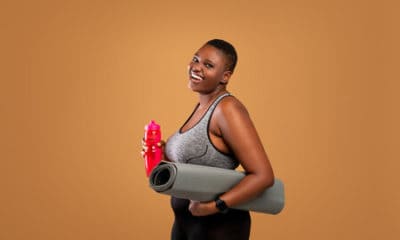3 How Clutter Affects Your Health And Happiness
A lot of us believe that minor bits of clutter can’t really affect us.
We think that only people who are serious hoarders are in danger of having their health affected by clutter.
Unfortunately, we are slowly realizing this simply isn’t true.
Scientists and the public realize that even minor bits of clutter can cause many physical and mental health problems.
These range from allergies and fatigue to breathing complications and depression.
Now the question we have to ask ourselves is; how does this happen, and what can we do about it?
Physical Health and Clutter
Dirt, dust, mold, mildew and/or bugs can all thrive in your clutter.
They all contribute to breathing complications, nausea, headaches, fatigue, and/or allergies.
The longer the clutter stays in the same spot, the worse the contamination gets.
How You Can Take Action
Even devoting as little as 5-10 minutes daily to clearing out clutter will positively affect your overall health.
Decide to tackle clutter a little daily or devote a weekend to tackling it all.
While you’re going through your stuff, pick up one piece at a time and decide whether you want to keep it.
If you choose to keep it, designate one spot for you to always keep the item and place it there.
Once the clutter is cleared, you can easily tackle any environmental hazards you find.
Mental Health and Clutter
Have you ever thought of why you are keeping a certain item?
Most of us rarely do.
However, it’s probably because we do not know what clutter does to our emotional and mental states.
Clutter is an energy of chaos and confusion but also contains the energies of shame, fear and guilt.
Left ignored, it will continue to affect your mental and emotional states of mind.
Let’s go over a few of the reasons people keep items in their home long after they stopped using them:
Example A. You bought an expensive camera years ago but have never used it.
Example B. A friend gave you a vase you don’t really like. You didn’t know what to do with it, so you kept it in a closet.
Example C. You lost some weight but keep your old ill fitting clothing just in case you might regain the weight.
Now let’s examine the emotional/mental toll keeping these seemingly innocuous items are really taking on you:
Example A: Emotional Toll = Shame
Keeping the camera solely because it was expensive means you’re keeping the item out of shame.
You feel embarrassed that you spent a lot of money on something you’ve never used.
Rather than admit the truth and get rid of it, you keep it thinking, “maybe someday I’ll use it,” while ignoring the fact that “some day” will never come.
That shame is now taking up your precious space in your mind and in your home.
Whether that camera is out of sight is irrelevant.
The energy is still there.
How You Can Take Action
Sell, donate, or give the camera to a friend.
Understand that maybe the only reason you bought the camera in the first place was the excitement of purchasing it.
That feeling and moment is now over, and you’re making a self-love decision to remove shame from your home.
Example B: Emotional Toll = Guilt:
Keeping an item because someone gave it to you, even if you don’t like it or use it, means you’re keeping it out of guilt.
Guilt is now taking up residence in your home and in your mind.
This makes it difficult to make smart decisions for yourself and set healthy boundaries.
How You Can Take Action
Guilt is like hanging heavy chains around your neck.
They certainly don’t allow you to move forward in life.
A gift is just that: a gift.
Upon receiving any gift, it is always your right to do with the gift what you want.
Your only job is to be grateful that someone cared enough to give you the gift.
So, express gratitude and happily do what you want with the gift.
You can donate it, sell it, give it away or even throw it in the trash.
The choice is between feeling free in your own home or living a guilt-ridden, self-imposed jail sentence surrounded by stuff you dislike.
It’s your decision.
Example C: Emotional Toll = Fear
Keeping an item because you think your body “might” change means you’re keeping it out of fear.
You’re afraid you won’t reach or keep your “perfect” weight.
So, you keep clothing that doesn’t fit you anymore.
You might even convince yourself that keeping the clothing is saving you money or even helping you keep the weight off.
You’re actually using fear to make your decisions rather than faith.
Fear is living in your home and telling you that you’re not worthy of being healthy or happy or that your body isn’t beautiful.
It took the form of a pair of pants you’re keeping in your closet.
Faith tells you that you will choose to make decisions that help rather than hinder your health, happiness, and productivity.
How You Can Take Action
Remove any clothing that doesn’t fit you well now, doesn’t look good on you, or isn’t in good shape.
Also, remove any items from your home you never use but keep because you think, “what if I need it?”
That’s fear.
Anything that makes you think, “what if?!” is fear-related.
Only faith and courage will allow you to move forward in your life.
Fear will only hold you back in life and keep you in a continuous battle for self-respect.
Choose yourself and have faith.
Guilt, fear, and shame are energies that weigh us down.
They force us to make decisions that go against our goals, priorities, happiness, and health.
They can be attached to our clothing, books, kitchen utensils, and anything else we own.
So how do we combat these low energies to free ourselves to choose our best life?
1. Keep only what you truly enjoy, use and need: This is a simple concept in theory but one that can become very difficult when faced with the guilt, fear and shame that clutter brings along with it.
However, the more you continue to choose to keep only what matters most to you, the easier this process
2. Make Small, Self Love Based Decisions: Choose yourself—choose to love yourself and buy and keep only what makes you happy, what makes you feel complete, empowered, content or joyful.
If an item no longer represents those happier emotions to you, it’s okay and necessary to let them go.
3. Emotional Awareness: The more we are aware of what we are feeling internally about what we are surrounding ourselves with, the easier it is to make and continue making, small, self-love based decisions.
Final thoughts on clutter
It also helps us understand what matters to us versus items we bought into our lives to fill an emotional void.
Another way to help yourself move into a happier, healthier space (without actually moving) is to build up a support system.
Whether it’s a therapist, decluttering expert, friend or family member, or support group, the more people who love and support you, the easier it is to make these positive changes permanent.
Always remember you’re worth making small, self love based decisions toward leading a better life.
Share your thoughts with us in the comment section below.
If you found this article helpful, please click the share button.











